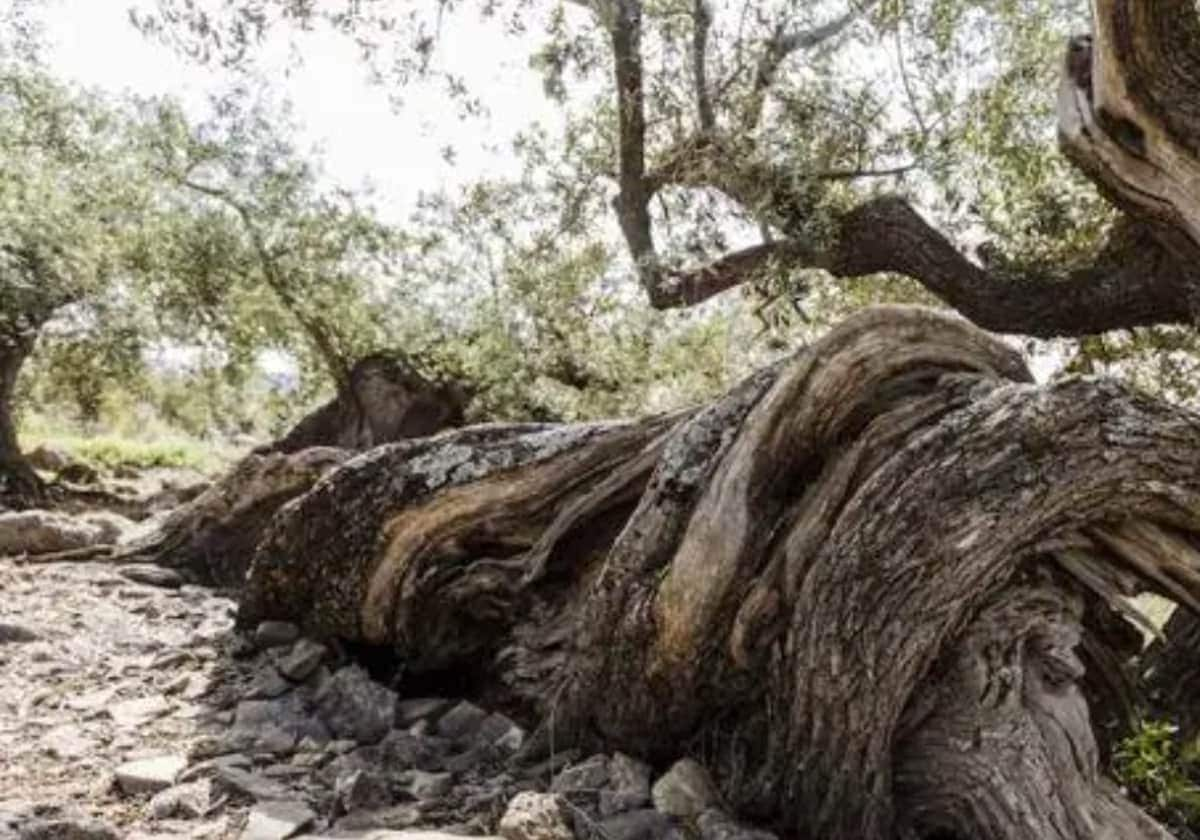Malaga province olive trees no longer in the running for Unesco World Heritage recognition
The groves in Periana and neighbouring Alfarnatejo were part of the Andalusian candidacy, which has been withdrawn due to the rejection and distrust of farmers from Jaen and Cordoba
Eugenio Cabezas
Malaga
Tuesday, 7 May 2024, 15:59
The ancient olive trees of Andalucía will not be, for the time being, in the running to get Unesco World Heritage recognition, unlike the Dolmens of Antequera which did get world heritage status in 2016. The institutional commission of the 'Olive Landscapes in Andalucía. A thousand year history of a sea of olive trees' has agreed to withdraw the candidacy "due to the opposition shown by a high number of farmers".
In recent months olive growers in Jaén province have collected up to 8,500 signatures against the initiative that was launched in 2015 and which included groves in Periana and Alfarnatejo, in the upper Axarquía.
Francisco Reyes, president of Jaen’s provincial body, the Diputación de Jaén said that "having analysed the events that have happened since the last time we met two weeks ago, we have decided, given the attitude and the pronouncement of farmers, cooperatives and some agricultural organisations, to withdraw the application".
Most monumental
Among the specimens that were included were the well-known 'snail' olive tree of Periana, which is located in Fuente Piojo and was recognised as the “the most monumental” in Spain in 2017.
Reyes said in a statement that in one of the 14 areas included in the application; the Campiñas de Jaén, "a large group of farmers and cooperatives have spoken out against the candidacy and this application can not be made against the will of farmers".
Around 8,500 olive growers in the localities of Porcuna, Lopera and Arjona, in the Campiña de Jaén, have signed a petition along with the agricultural association Asaja in Cordoba. The olive growers argue that they were not guaranteed the right of ownership of their farms.
"The experience based on other similar situations indicates that, in the end, the farmer will end up being penalised," warned Ignacio Fernández de Mesa, president of Asaja in Córdoba. However, the president of the Diputación de Jaén recalled that the 'Landscapes of the Olive Grove' was the candidacy that Spain was to submit to the Unesco assembly due to take place in the summer of 2025.
Reyes has said that he regrets "the work and effort” that has gone in “for a long time” by those working on the application. He added, “We launched this candidacy convinced that it was a good initiative." The general secretary of UPA Jaén, Cristóbal Cano, indicated that it is a "fateful day" for the Andalusian olive sector.
Lack of loyalty
Cano commented on "the work, the time and the resources lost due to bad information, a lack of loyalty of some actors of the sector and the political interferences” that made it impossible for the application “to prosper” and he said it was “a decision we will regret in the future".
The candidacy raised the protection of 13,489 hectares of olive groves of five Andalusian provinces: Seville, Malaga, Granada, Cordoba and Jaen, and the application was endorsed by the five diputacions and universities of these provinces, agricultural and other organisations.
Mayor of Alfarnatejo, Daniel Benítez has also said he regrets this decision and says that the majority of Malaga province’s ancient olive trees can be found in the Pulgarín and Sabar areas of the village which border Periana.
Mayor of Periana Rafael Torrubia has also criticised the decision, "because it delays all of us who want and believe in the project," he said. However, he believes that the application “will be resubmitted” without the areas that are opposed to the application.
